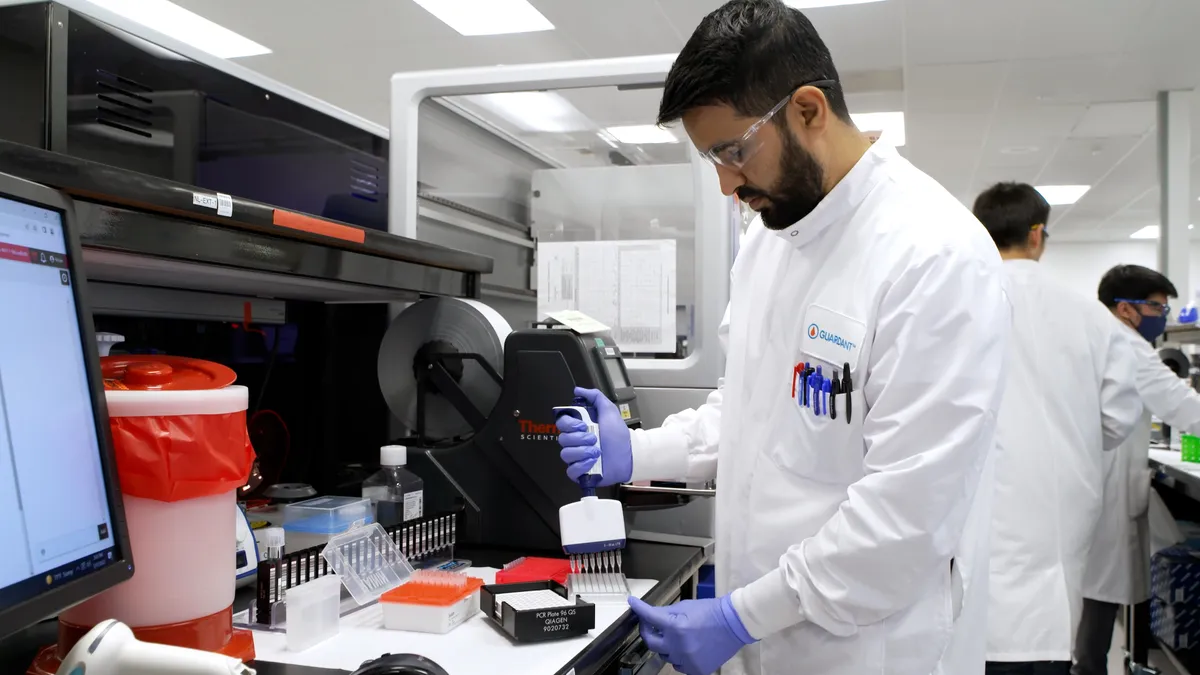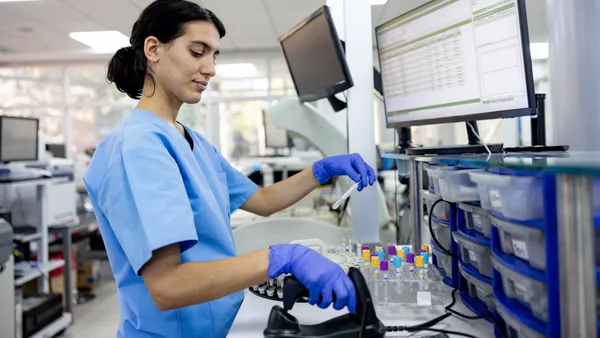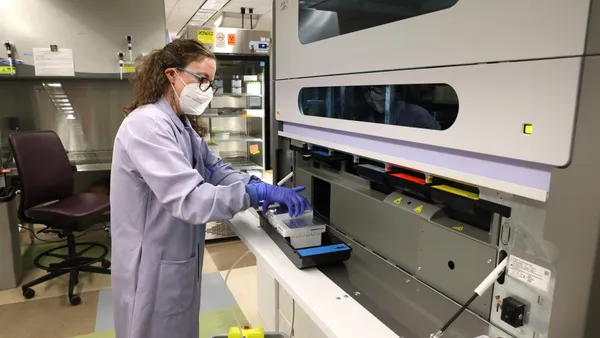Dive Brief:
- Guardant Health has accused Natera of poaching its employees and stealing its trade secrets in a lawsuit filed Thursday.
- The lawsuit claims Natera aggressively targeted and recruited bioinformatics scientists from Guardant to “jumpstart its lagging position in the early cancer test industry.” Former Guardant employees have taken trade secrets with them to Natera, according to the complaint. A Natera spokesperson, in an email, wrote that the complaint is “riddled with baseless allegations. We will vigorously defend ourselves against Guardant’s meritless and anticompetitive claims."
- Guardant brought the lawsuit against Natera and two former employees it accused of collectively transferring more than 6,500 “critical trade secret files” from its IT systems without authorization or notice. Guardant did not immediately respond to a request for comment.
Dive Insight:
The lawsuit claims Guardant’s development of early cancer detection tests has “sparked jealousy from its competitors.” Last year, Guardant’s Shield became the first blood test approved by the Food and Drug Administration as a primary screening option for colorectal cancer. The lawsuit alleges Natera, in an attempt to compete, has broken the law against stealing trade secrets.
“Natera’s desperation has led it to brazenly employ unfair and illegal tactics, including attempting to lure Guardant employees to bring over Guardant’s highly sensitive and proprietary Trade Secrets to Natera,” the lawsuit states. “Unable to develop a competitor to Guardant’s early cancer detection technology through legitimate competition, Natera now aims to poach Guardant’s employees and have them surreptitiously provide Natera with Guardant’s protected Trade Secrets.”
The lawsuit names two former Guardant bioinformatics employees as defendants: Alan Selewa and Catalin Barbacioru. Selewa is accused of transferring around 90 files from Guardant’s IT systems to a Google drive before leaving the company in January. The files contain information about a multi-cancer detection test that Guardant is developing, according to the lawsuit. Meanwhile, Barbacioru allegedly transferred around 6,500 Guardant files to an external USB hard drive shortly before leaving the company for Natera.
The lawsuit names three other bioinformatics scientists who left Guardant for Natera but are not listed as defendants.
All the defendants are accused of misappropriating trade secrets. Guardant claims the files allegedly taken by its former employees were received and used by Natera, which “knew or had reason to know” that trade secrets were acquired “through improper means.”
The lawsuit comes months after Guardant won a false advertising case against Natera. A U.S. jury awarded Guardant $292.5 million after hearing evidence that Natera allegedly made “false and misleading statements” to convince people to use its Signatera cancer test rather than its rival’s Reveal product. The judge is scheduled to consider both companies’ post-trial briefings at a hearing in March.
Correction: A previous version of this article misstated how many people Guardant Health believes are implicated in the case. The information was removed because the inclusion of unnamed parties is common legal practice in discovery.









